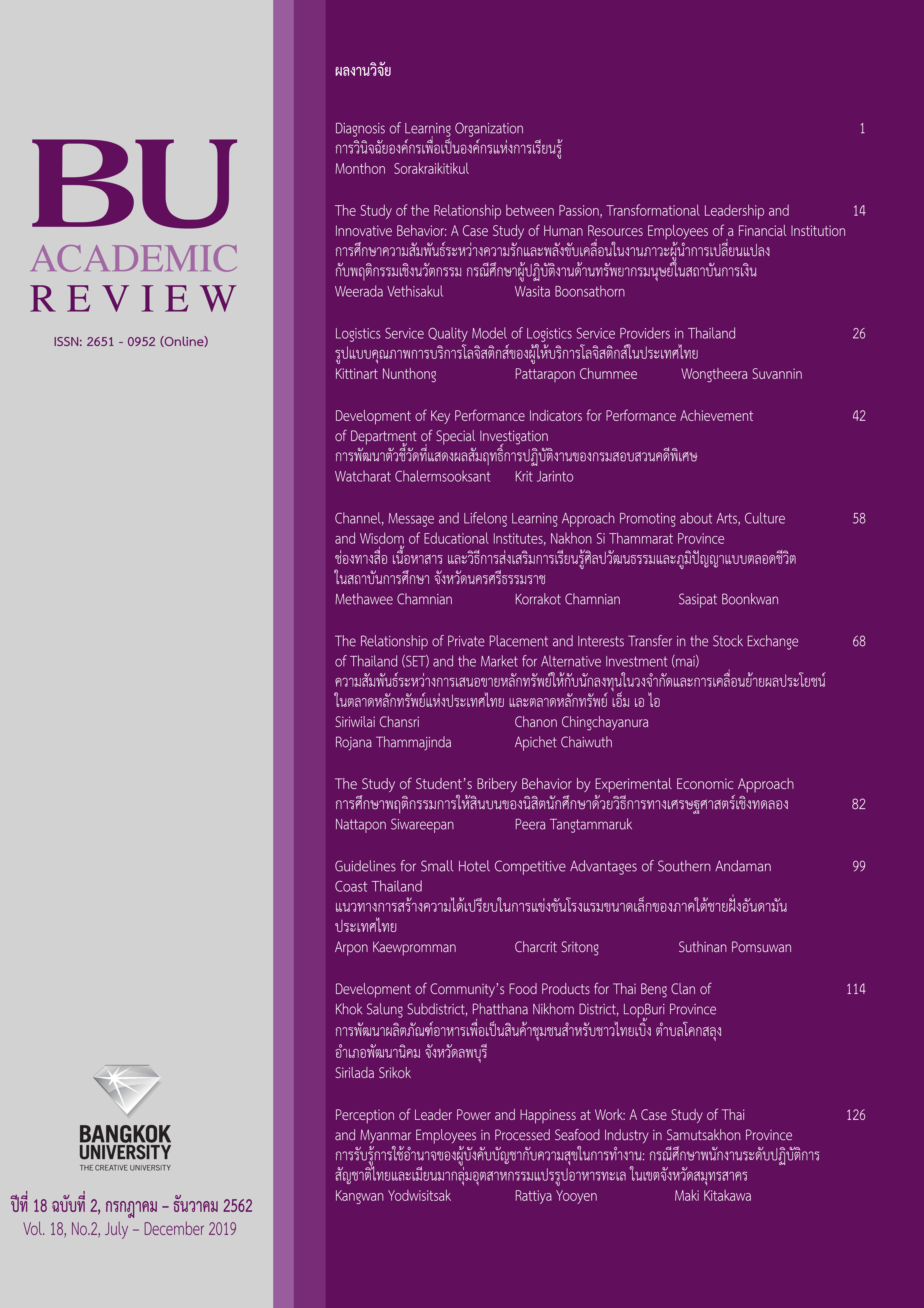Perception of Leader Power and Happiness at Work: A Case Study of Thai and Myanmar Employees in Processed Seafood Industry in Samutsakhon Province
Main Article Content
Abstract
The changing faces of working in multi-cultural contexts may have an impact on survival benefits of the present-day organizations in general. In particular, Thailand’s workforce these days depends largely on foreign labors and this may have an effect on competence of the organization. The objectives of this study were: 1) to evaluate and compare the level of perceived leader power and happiness at work amongst Thai and Myanmar employees, and 2) to determine the effect of perceived leader position power and personal power to happiness at work of Thai and Myanmar employees. The back translation technique was also used to validate the equivalence of both Myanmar and Thai languages in the questionnaire used as a research tool. The result revealed that the happiness at work of Myanmar employees is statistically significant at the level of 0.05 higher than that of Thai employees. In addition, the perceived leader personal power had greater effect on happiness at work than the perceived leader position power in both Thai and Myanmar employees.
Article Details
The manuscript submitted for publication must be the original version, submitted only to this particular journal with no prior acceptance for publication elsewhere in other academic journals. The manuscript must also not violate the copyright issue by means of plagiarism.


